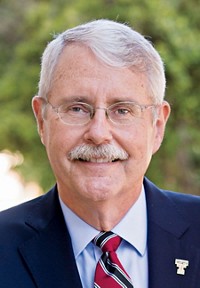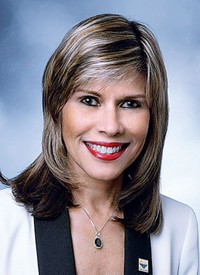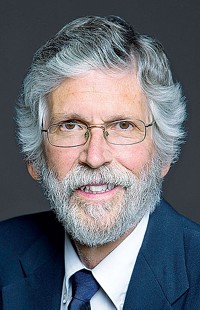Advertisement
Grab your lab coat. Let's get started
Welcome!
Welcome!
Create an account below to get 6 C&EN articles per month, receive newsletters and more - all free.
It seems this is your first time logging in online. Please enter the following information to continue.
As an ACS member you automatically get access to this site. All we need is few more details to create your reading experience.
Not you? Sign in with a different account.
Not you? Sign in with a different account.
ERROR 1
ERROR 1
ERROR 2
ERROR 2
ERROR 2
ERROR 2
ERROR 2
Password and Confirm password must match.
If you have an ACS member number, please enter it here so we can link this account to your membership. (optional)
ERROR 2
ACS values your privacy. By submitting your information, you are gaining access to C&EN and subscribing to our weekly newsletter. We use the information you provide to make your reading experience better, and we will never sell your data to third party members.
Policy
For President-Elect: Luis A. Echegoyen
September 10, 2012
| A version of this story appeared in
Volume 90, Issue 37
Rio Grande Valley Section. University of Texas, El Paso
Academic record: University of Puerto Rico, B.S., 1971; Ph.D., 1974; University of Wisconsin, Madison, postdoctorate, 1975
Honors: ACS Award for Recognizing Underrepresented Minorities in Chemistry for Excellence in Research & Development, 2011; ACS Fellow, 2011; Herty Medal, Georgia Section, ACS, 2007; Florida Section, ACS, Award, 1996; IUPAC Fellow, 2009; Alumni Research Award, Clemson University, 2007; Clemson University, College of Engineering & Science Award for Faculty Achievement in the Sciences, 2004; American Association for the Advancement of Science, Fellow, 2003; Fogarty Senior International Fellow, 1990 and 1997; University of Miami Provost’s Scholarly Activity Award, 1997; Bausch & Lomb Honorary Science Award, 1968
Professional positions (for past 10 years): University of Texas, El Paso, Robert A. Welch Professor of Chemistry, 2010– ; Clemson University, professor, 2002–10, chair, 2002–06; National Science Foundation, director, chemistry division, 2006–10; University of Miami, professor, 1983–2002
Service in ACS national offices: ComSci, 2005–08, committee associate, 2003–05
Service in ACS offices:Chicago Section: Gibbs Medal Jury, 2008–12
Member: Member of ACS since 1973. American Association for the Advancement of Science, Electrochemical Society
Related activities: Editor-in-chief, Journal of Physical Organic Chemistry, 2011– ; Union Carbide Corp., Chemist I, 1975–77; University of Puerto Rico, Río Piedras, associate professor, 1980–83, assistant professor, 1977–79; NSF Chemistry Division, program officer, 1982–83, member of advisory committee, 1986–89; sabbatical at University Louis Pasteur with professor Jean-Marie Lehn (as Fogarty Senior International Fellow), 1990; sabbatical at Swiss Federal Institute of Technology, Zurich, with professor François Diederich (as Fogarty Senior International Fellow), 1997–98; member of Mathematical & Physical Sciences (MPS) Advisory Committee, NSF, 2003–06; NSF Committee on Equal Opportunity in Science & Engineering, member, 2003–06; Journal of the Mexican Chemical Society, editorial board, 2005– ; Fullerenes, Nanotubes & Carbon Nanostructures, editorial board, 2006– ; Gordon Research Conference on Physical Organic Chemistry, vice chair, 2009; Gordon Research Conference on Physical Organic Chemistry, chair, 2011; Instituto Madrileño de Educación Avanzada (IMDEA) Nanociencias (Spain), member of the board of trustees, 2008– ; Council for Chemical Research, member of the governing board, 2008–10; Physical Chemistry of Solid Surfaces (PCOSS) Institute, Xiamen, China, member of the international advisory board, 2009– ; Changchun Institute of Applied Chemistry, Chinese Academy of Sciences, distinguished guest professor, 2009– ; SACNAS, member of the board of directors, 2012– ; MRSEC, member of the advisory board, UC Santa Barbara, 2012– ; PREM, UT San Antonio-Northwestern, member of the advisory board, 2011– ; published 301 journal articles, 42 book chapters; 330 invited lectures
ECHEGOYEN’S STATEMENT
Chemists almost unanimously agree about the centrality of their discipline among the sciences and its crucial role in providing the solutions to the grand challenge problems, which include sustainability, health, and security. To convince others outside our discipline about the importance of chemistry, we need specific and realistic plans to promote change. I firmly believe in strong leadership and persuasion to translate words into action, to effect change. We are collectively very good at discussing issues and drafting solutions but not as effective in taking action and implementing changes. As president of ACS, I would do the following:
Promote Inter- and Multidisciplinary Education and Research. Educating the future generations to succeed in an increasingly diverse, complex, and multidisciplinary world necessitates creative approaches in the classroom and in the laboratories. Although we verbally promote inter- and multidisciplinary education, curricular changes have been incremental at best, partly due to structural constraints and inertia. Through the Committee on Professional Training, I would evaluate curricular alternatives that best exploit our rich diversity and reflect the ways in which chemical research is conducted in industrial and academic institutions. Real changes are needed to continue to thrive intellectually if our discipline is to remain vibrant.
Advocate Strongly for Increases in Research and Development Funding. Using my academic and industrial experience, scientific expertise, and the knowledge acquired during my years at NSF, one of my top priorities would be to work closely with the ACS Office of Public Affairs to educate and convince Congress that investing in basic chemical research is essential for the health of the U.S. innovation engine and the long-range competitiveness and prosperity of the country. Funding chemical research is not an expense for the country; it is an investment, and a very wise one. Federal funding for our field has been shown to yield substantial returns, both intellectual and economic. My years in Washington, D.C., gave me a very broad and somewhat unique perspective that will be crucial to articulate a powerful and convincing case on behalf of our community. We need to rise above the gathering storms that are whirling around the world and threatening our preeminent positions in STEM disciplines.
Promote Closer Ties between Industry and Academic Institutions. Our discipline is the only science with an associated industry that bears the same name. In order for the U.S. to retain a privileged position in worldwide science and innovation, the research and development enterprise in chemistry demands much closer ties between industrial and academic sectors and requires a delicate balance between public and private funds. Industry can no longer expect that all of the basic research and education of future generations will be exclusively supported with public funds, nor can academic institutions plan to function as industrial centers. ACS has a crucial role to play to bring these sectors closer together and to help catalyze a positive and synergistic interaction for the collective good. Intellectual property issues have to be addressed and resolved, and as president, I would make this one of my top priorities.
Increase International Partnerships. Defining the fine dynamic balance between collaboration and competition at the international level is crucial to set the right path for the success of the U.S. Global partnerships need to start at the very early educational stages via student exchanges at all levels and extend into cooperation in fundamental and applied research addressing grand challenge issues. ACS should encourage these interactions through the expansion of some of its existing programs in the Education Division, the Office of International Activities, and the Green Chemistry Institute and create new programs and cooperative funding mechanisms. To this end, I would strengthen and establish new partnerships with other professional societies in the U.S. and around the world.
In summary, if elected president of ACS, I would concentrate my efforts in catalyzing change at many levels, in multidisciplinary education and research; advocating on behalf of the profession and for science in general; promoting closer university-industry ties; and enhancing international partnerships. I would select a few specific action items to work on in a realistic and focused way to accomplish the goals before my term was over. My professional background that includes industrial, governmental, and extensive academic experience makes me uniquely qualified to represent and defend the multiple interests of our membership. I look forward to taking on these challenges for the benefit of our community and to convince others of the centrality and importance of our discipline. For more details about my qualifications and experience, please visit luis-echegoyen.org.






Join the conversation
Contact the reporter
Submit a Letter to the Editor for publication
Engage with us on Twitter